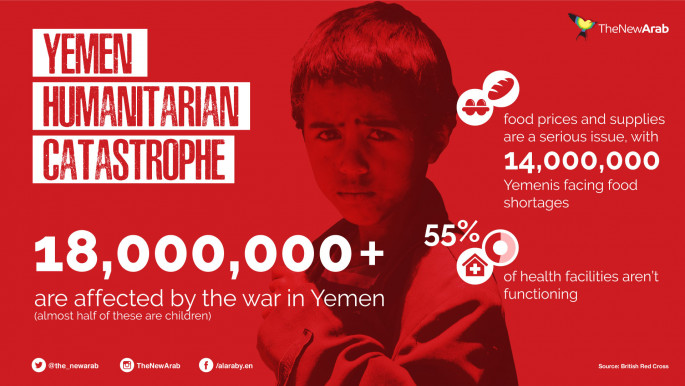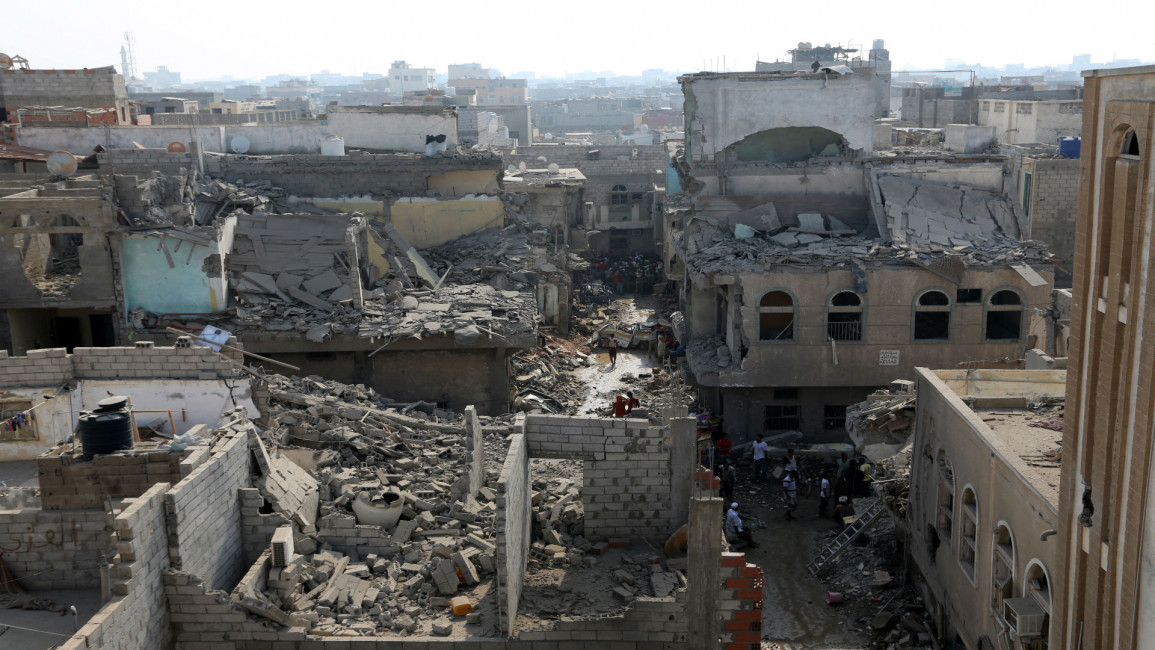Yemen: Saudi-led coalition 'using banned Brazilian-made cluster bombs'
The Saudi-led coalition fired Brazilian-made rockets containing banned cluster bombs that struck two schools in Yemen earlier this month, Human Rights Watch has said.
The 6 December attack on al-Dhubat neighbourhood in the northern Yemeni city of Saada killed two civilians and wounded at least six, including a child.
The attack came a day after Yemen, Saudi Arabia, Brazil, and the United States abstained from a vote in the United Nations General Assembly that endorsed an international ban on the use of cluster bombs.
Brazil should cease the production and sale of cluster munitions, while Saudi Arabia and other Arab coalition members should stop all use of cluster munitions, Human Rights Watch has urged.
"Brazil should be on notice that its rockets are being used in unlawful attacks in the Yemeni war," said Steve Goose, arms director at HRW.
"Cluster munitions are prohibited weapons that should never be used under any circumstances due to the harm inflicted on civilians. Brazil should make an immediate commitment to ending production and export of cluster munitions."
The Saudi-led coalition has been fighting Houthi rebels in Yemen for 20 months on behalf of exiled President Abed Rabbo Mansour Hadi.
HRW and Amnesty International have documented the use of seven types of air-delivered and ground-launched cluster munitions made in the US, the United Kingdom, and Brazil.
The coalition has admitted using UK and US-made cluster munitions in attacks in Yemen.
On December 19, the Saudi-led coalition announced it would stop using a UK-made cluster munition, the BL-755, but left open the possibility it would continue using other types of cluster munitions in Yemen.
Witnesses to the attack in Saada photographed the damage and unexploded submunitions at the site, HRW said.
Bassam Ali, a 20-year-old neighborhood resident, said: "We thought it's like the regular missiles that always hit Saada... Which only create single explosions. This one was different, a series of explosions together... All of the bombs landed over our neighbourhood, over houses, and on the streets."
Khaled Rashed, a member of the local council, said the rocket strike occurred near a girls' school and a boys' school, both between the old city and al-Dhubat neighbourhood.
Dr Mohammed Hajjar, general director of the largest hospital in Saada, said the hospital treated seven people for wounds, of whom one later died, and that another had died before arriving.
Fathy al-Batl, a local activist, said that those wounded included a teacher, a 20-year-old student, and a 14-year-old boy.
Cluster bombs are launched from the ground by artillery and rockets or dropped from aircraft and contain multiple smaller explosive submunitions that spread out over a wide area. Many fail to detonate and leave unexploded submunitions that become de facto landmines that continue to pose a threat long after a conflict ends.
Cluster munitions are prohibited by a 2008 treaty signed by 119 countries, though not by Brazil, the US, Yemen, or Saudi Arabia, and its coalition partners Bahrain, Egypt, Jordan, Kuwait, Morocco, Qatar, Sudan, and the United Arab Emirates.
These countries should join the Convention on Cluster Munitions and abide by its provisions, HRW said.
More than 10,000 people have been killed in the Yemen conflict, and some 3 million have been displaced. The fighting, along with an air and sea blockade by the coalition, has pushed the Arab world's poorest country to the brink of famine.



